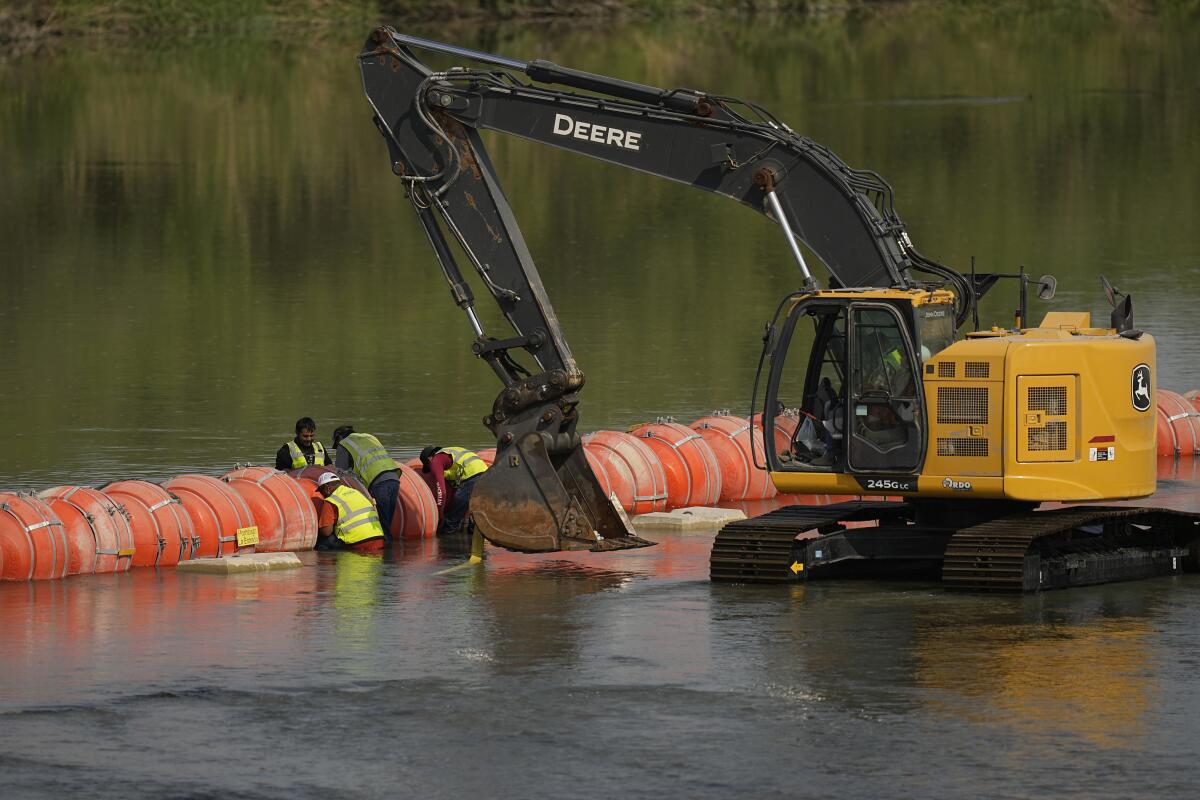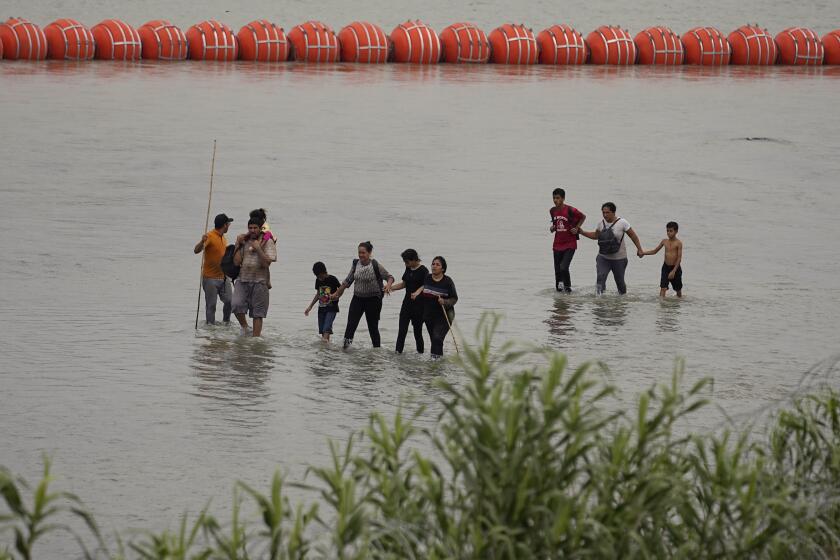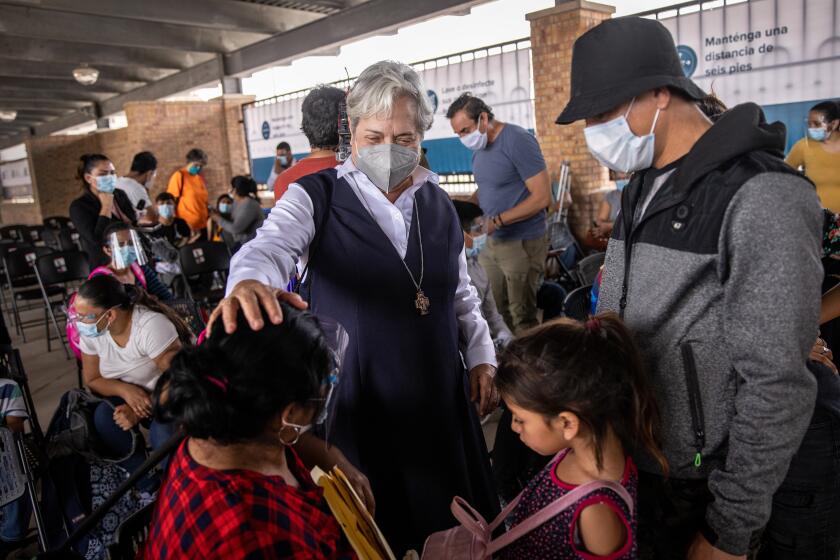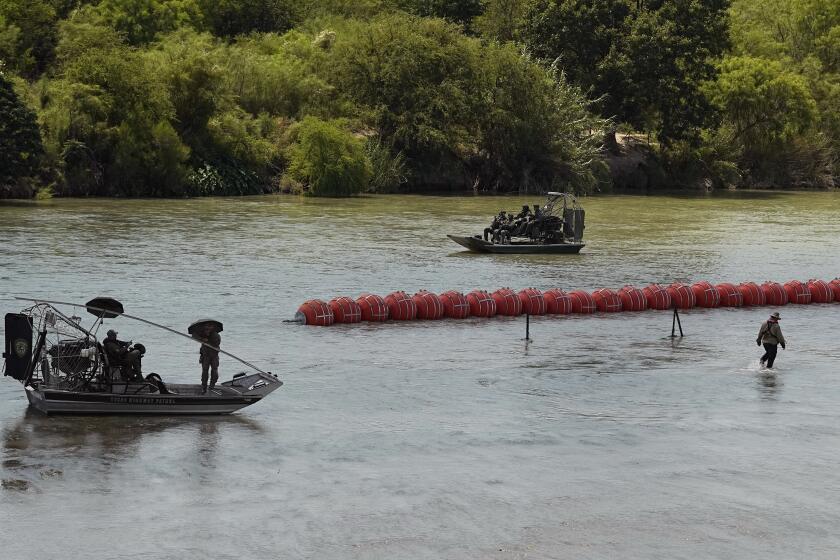Texas’ floating barrier for migrants draws recurring concerns from Mexico, U.S. official says

- Share via
AUSTIN, Texas — Mexico’s government has repeatedly raised concerns with the U.S. about large buoys Texas put on the Rio Grande to deter migrants, and agreements between the two countries could suffer if the floating barrier remains in place, a State Department official said in court Tuesday.
The testimony sought to reinforce what the Biden administration argues are the diplomatic stakes over wrecking-ball-sized buoys that Texas Gov. Greg Abbott authorized this summer as part of the Republican’s increasingly hard-line measures in the name of curbing the flow of migrants crossing the border.
Texas is being sued by the Justice Department, which also argues the barrier could pose humanitarian and environmental risks.
U.S. District Judge David Ezra did not immediately rule at the conclusion of the hearing Tuesday in Austin. At one point, Ezra said the issue centered on whether Abbott has the power to unilaterally try stopping what the governor has described as an “invasion” on America’s southern border.
“Mexico has sensitivities about sovereignty and doesn’t want to be seen as a lesser partner to the United States,” said Hillary Quam, the State Department’s coordinator for border affairs between U.S. and Mexico.
The Justice Department is suing Republican Gov. Greg Abbott over a floating barrier Texas placed on the Rio Grande to stop migrants from entering the U.S.
She said Mexico has raised concerns “at the highest diplomatic levels” with the U.S. in the short time that the buoys — which stretch roughly the length of a handful of soccer fields on a portion of the river near the Texas city of Eagle Pass — have been on the water.
Quam said infrastructure projects between the countries and Mexico’s commitments to delivering water to the U.S. could stall over the barrier.
The hearing was held days after Texas repositioned the barrier closer to U.S. soil. During a trip Monday to Eagle Pass, Abbott said the barrier was moved “out of an abundance of caution” following what he described as allegations that they had drifted to Mexico’s side of the river. He added that he did not know whether the allegations were true.
Ezra questioned why Texas would have moved the barrier if it was already on the U.S. side and whether the currents of the river were causing the buoys to drift.
“If it were in a position Texas was comfortable with, they wouldn’t have done that,” Ezra said.
Sister Norma Pimentel, a nun famous for her compassion toward migrants, said that parties on both sides of the aisle turned the bus carrying migrants from Texas to L.A. into a spectacle.
Ezra ordered both sides to submit written closing arguments by Friday as the Biden administration seeks a court injunction ordering the removal of the buoys.
Abbott was joined at the border Monday by the Republican governors of Iowa, Nebraska, Oklahoma and South Dakota, all of whom have sent their own armed law enforcement and National Guard members to the border.
Mexican authorities are working to identify two bodies found in the Rio Grande, one found near the floating barrier Texas Gov. Greg Abbott installed.
More to Read
Sign up for Essential California
The most important California stories and recommendations in your inbox every morning.
You may occasionally receive promotional content from the Los Angeles Times.













